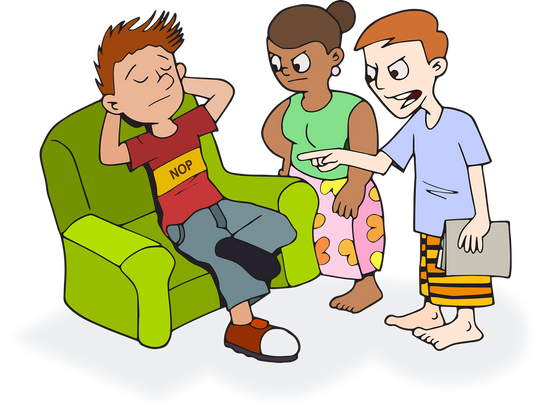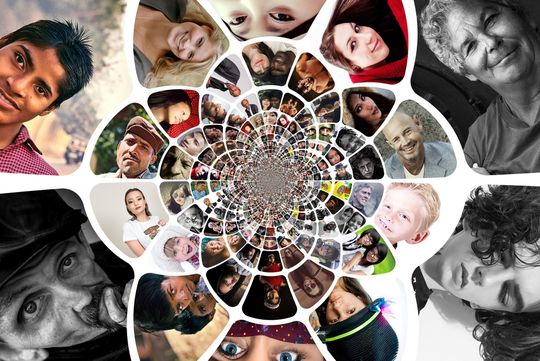So you have taken the Myers-Briggs Personality test and now you know you are an INFJ. You likely have studied up on your personality and know that some of the key traits of INFJs are creativity, insightfulness, principled, passion, and altruism. Lucky for you, these are all traits that can be very useful in learning languages.
Now to give you a little background information on me … my language-learning journey started 5 years ago when I was dropped in South Korea for a year and a half. My time in South Korea along with my studies back in the states and a semester-long study abroad in Seoul helped me progress my language skills to an advanced level.
While taking classes and making friends with fellow Korean language learners, I noticed that my approach to language learning varied from classmates and friends. After reflecting on my personality and the way I learn, I discovered the following things about myself.
These tips and experiences will be useful to all of you INFJs out there who are currently learning or thinking about learning a new language. Feel free to share with your INFJ buddies or language partners so they can help you better!
15 Ways That INFJs Study Languages
1. Come up with unconventional ways to study.
Making up only 1% of the population, INFJs are truly unique people. Especially for their ability to be creative and think outside of the box. As I studied Korean, I found that a typical study task easily bored me. I was constantly looking for new ways to study and use my Korean skills. Here are some of the unconventional ideas that I came up with to study Korean…
- Teach a Korean English in Korean.
- Translate Korean webtoons into English
- Teach fellow Korean learners a Korean lesson
- Watch Korean movies in Korean with Korean subtitles
- Memorize Korean songs to sing
2. Switch up study focus.
While creativity helped in some areas of my language learning, I found it to be a double-edged sword. This is because when studying, I easily get bored if I don’t switch up tasks often. To avoid the temptation of giving up on studying when bored, I come up with diverse study plans to fight boredom and monotony. A regular study session for me might look something like this…
Study vocabulary - 15 mins
Study new grammar form - 15 mins
Watch Youtube videos in Korean - 15 mins
Read a Korean webtoon - 20 min
Watch a Korean drama - 50 min
Complete a worksheet -15 min
3. Don’t memorize words, understand their background.
INFJs are known for being incredibly insightful. They have the ability to look beyond what’s on the surface and understand the reason or meaning behind something. For me, this skill influenced how I saw the Korean language.
Instead of memorizing words or expressions, I try to understand the roots of words and their cultural background. Then I can usually infer meaning and the situation they might be used in. I found this method to be much more digestible than simple memorization.
Connecting the dots is actually really fun for INFJs! For example in Korean, 학교 (Hak-gyo) which means school and 학생 (Hak-saeng) which means student, both have the same ‘Hak’. It turns out it is the same root for something like ‘learning’. So school is a ‘place of learning’ and student is ‘living learner’. Finding these connections made vocabulary fun for me as an INFJ!
4. Find native friends.
INFJs are deeply motivated by the people they love. INFJs also have a strong desire to communicate with people in a deep and non-superficial way. For me, this desire became a motivation in learning Korean. As I made friends and got closer to them, my motivation to learn Korean increased because my desire to communicate with friends on a deeper level increased.
I highly recommend that any INFJ who is learning a language should find at least one close friend that speaks the language you are learning at a native level. Not only will your language skills increase as you study hard to communicate with them, but also your understanding of the language’s culture will improve.
5. Be immersed in your target language’s culture.
As all INFJs know, we are introverted, but that doesn’t mean we dislike people. In fact, one of the biggest joys we find in life is getting close enough to someone to truly understand them. The same goes for cultures. The more immersed I became in Korean culture, the more I understood it and the more I loved and enjoyed spending time with it, flaws and all.
This in turn gave me a greater understanding of the language as all languages are linked with the culture they are spoken in. Immersing yourself in the culture can be difficult if you are not living in a country that speaks the language you are learning. Here are some ways I immersed myself in Korean culture even when I wasn't living in Korea.
- Watched K-drama/Korean movies
- Watched Korean Youtubers
- Read Korean news to understand current issues
- Talked with Korean friends
- Ate Korean food
- Read Korean books
6. Don’t get a big head.
Like many other personality types, INFJs thrive off compliments. It feels good to be told that your language skills are good. It boosts your confidence and makes you feel like you are making progress. When you learn a new language, native speakers will often compliment you endlessly on your skills.
While I do like being complimented, Sometimes I used compliments as an excuse to not study. If everyone tells you your Korean is great, then it must be great right? These compliments inflated my ego and made me think I didn’t need to study hard. Later I had to learn to not let compliments go to my head and be realistic with myself when rating my language skill level.
7. Learn according to your passions.
INFJs are passionate about learning about their interest. Unless an INFJs main interest is learning languages, learning a new language can be tasking and even boring. However, when I mixed in my interest with language learning, things always got way more interesting and fun.
For example, I love politics and I love talking about politics with others. I am always more motivated when I include political activities in my language studies, like reading a news article, or asking a Korean friend about the latest policy their president enacted. When including my interest in my language studies, I always learn more Korean and more about my interests.
8. Plan around an altruistic goal.
There might be many reasons you chose to learn a new language. Maybe you like the culture, feel that the language might be useful in the future, or just think language learning is fun. I started learning Korean for survival while living in Korea, but when I left Korea and no longer needed to speak it to get through daily life, survival was no longer a motivation.
I then went through a rough patch. I had little motivation to study and didn’t progress in Korean, though I still had an interest in Korean culture. That is when I found my new motivation, helping North Korean refugees in South Korea. I was motivated again to learn Korean to be able to communicate with North Koreans and South Koreans to help the people of North Korea.
INFJs are altruistic people. Every INFJ wants to make the world a better place and they love to use their strengths and knowledge to do so. Finding an altruistic goal to aim towards while studying Korean gave me a motivation beyond myself to lean on when my own interest was not enough.
9. Be vulnerable when speaking your language.
When learning a language, making mistakes is inevitable, no matter how much you study. This can be tough for idealistic INFJs who aim for perfection. I found myself becoming increasingly depressed when I was first learning Korean. Everything I said came out wrong, even if I knew how to say it right.
I then became self-conscious when speaking and started avoiding situations where I would have to speak to people. My self-confidence took a hit and I didn’t progress. In order to start progressing again I had to understand I would make mistakes. I also had to learn to accept criticism and my own inevitable embarrassment when speaking Korean.
10. Learn to control perfectionism.
As said above, INFJs are perfectionists. We like to do things well and tend to focus on imperfections. However, perfectionism is an impossible ideal when learning a language because mistakes are how languages are learned. I often found myself focusing on the imperfections in my Korean rather than the progress I made. In turn, I often grew discouraged.
After doing some self-reflection, I came to the conclusion that perfectionism can be useful in some parts of language learning and crippling in others. Perfectionism in keeping a study schedule can be an advantage, whereas perfectionism in writing or speaking the language will only lead to discouragement. By controlling my perfectionistic behaviors I was able to avoid discouragement and progress my language skills. Language learning is also a lot more fun now.
11. Avoid burnout.
As passionate people with a drive for perfectionism, INFJs are prone to burnout. We strive for the best and are often disappointed when we don’t reach our own standards. During my efforts to reach the standards I created for myself, I experienced major burnout that left me pessimistic and exhausted.
Learning a language is not a short journey. It can take years, even a lifetime. To use an analogy, learning a language is like a marathon. Marathon runners don’t sprint in a marathon until they see the finish line. If I was to describe my early experience learning Korean, I would describe myself as a sprinter in a marathon.
I wanted to learn everything as fast as possible, and I got frustrated with myself when I thought I wasn’t learning fast enough. It wasn’t until I took the pressure off myself by accepting the speed at which I learn that I started progressing and enjoying language study. Now I would describe myself as a slow marathon runner, at the back of the pack, but still running.
12. Study alone and with others.
As introverts, most INFJs prefer to be alone, unless they are with someone they are very comfortable with. I am no different. To me studying in groups was a waste of time and uncomfortable. I much preferred to study alone in the comfort of my own house. I studied like this for the first few years I was learning Korean.
Later, when studying in Korea, I met many friends who were also studying Korean. I was invited to study groups and while I still preferred being at home, I recognized some benefits of studying in a group. When studying in groups you have the opportunity to teach others what you know. You also get to hear how other people interpret and understand language concepts.
In the end, I concluded that a mix of studying alone and with others is the best approach for developing well-rounded language skills. When studying alone, I got more done and concentrated better, but when I studied with others, I got to see things from a viewpoint that I would have never thought up on my own.
13. Learn by feeling rather than memorization of definitions.
When learning Korean, I studied by memorizing grammar, vocabulary, expressions, etc. But, I discovered that 90% of the things I memorized would eventually be lost if I didn’t hear them used firsthand. When I heard them used, I connected the word to a feeling rather than a set definition. I was then able to retain words, expressions, grammar, etc.
I attribute this to INFJs' intuition and feeling traits. INFJs are used to looking past what's on the surface and finding the deeper meaning. As carriers of the feeling trait, we also find it easier to process emotions than objective information.
14. Find other ways to motivate yourself.
INFJs are usually not very competitive people. Actually, many INFJs are reported to find it outright uncomfortable to compete, especially with friends. In other words, we don’t like competition. As such, it was hard for me to find motivation outside of my long-term goals of helping North-Korean refugees and surviving in Korea.
I later learned to create short-term goals centered around my own progression. Some goals I created to stay motivated included, use 10 new words in conversation this week, get an A in Korean class this semester, watch one whole drama without English subtitles, talk with a friend completely in Korean for an hour this week, etc.
15. Create study plans.
INFJs are idealistic people with big dreams and ambitions. We also have high expectations for ourselves and often are disappointed or discouraged when we don’t live up to those expectations. While learning Korean there were many times when I was disappointed in what I viewed as slow progress.
I thought, how am I ever going to get to my goal of fluency moving at this pace? I learned that I would forever struggle to turn my goals into reality if I didn’t break my goals into everyday tasks that would eventually lead me to my ultimate goal. When I started creating weekly study plans, I was able to measure my progress and feel better about the speed I was moving at.
In Conclusion...
I hope that when reading this blog you were able to relate to some of the things I experienced and maybe find a few ideas to implement into your own language-learning journey. I am in no way an expert on being an INFJ and recognize that no INFJ is the same.
So I encourage you to reflect on your own language-learning habits to see what has helped and hindered you in your language-learning journey. And then share any advice you might have with fellow INFJs! Together we can become more effective language learners! Until we meet again…









